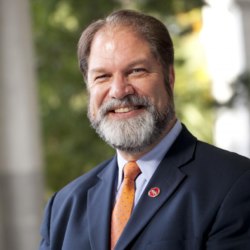How Alleged Corruption Can Stun a City
In their book, “Bridgebuilders: How Government Can Transcend Boundaries to Solve Big Problems,” William Eggers and Donald Kettl make a simple observation: “Accountability and trust go hand in hand.”
What if a government doesn’t provide transparency that allows for accountability? It makes building trust very difficult. What happens when a government is so shell-shocked from the actions of corrupt officials, it falls gravely behind on its basic requirements?
When I recently talked to Sergio Infanzon, the director of Huntington Park’s Communications and Community Relations, which includes dealing with the media, he had to ask for the name of the annual reports and directed me to file a California Public Records Act request with the City Clerk. After an email and verbal requests, he didn’t have a clue about why his city was the only delinquent one out of Los Angeles County’s 88 cities.
Why is such a simple request so difficult? Why was this recent telephone discussion, and many others during this year, so vague and redirected?
A couple of years ago, a media story may have provided the details of why Huntington Park has been frozen in time. When some experience financial trauma, it takes them years to recover emotionally.
I know Adam Elmahrek, and have been interviewed by him numerous times over these many years. I trust him. And his next few paragraphs did not let up.
“A decade ago, the tiny city of Bell became infamous for paying its City Council and executives outsize salaries. Next door in Cudahy, a reformist candidate for City Council who railed against corruption had bricks thrown through his windows and a Molotov cocktail tossed at his house. And this year, prosecutors accused the former Maywood mayor and a former councilman of taking bribes from city contractors.”
Ouch! But at least these cities are paying their outside independent auditors and releasing their audits. But the piece still doesn’t let up.
“Trouble in this region that has been called a ‘corridor of corruption’ erupted again in recent months—this time in Huntington Park, a hard-pressed community that ranked highest in California in a national ‘misery index’ of poverty, commute times, and civic engagement.
“A city budget analyst was arrested, and most of her colleagues in the Finance Department were placed on leave and escorted from City Hall. The allegation was that the analyst had breached confidential records.”
Former California Legislature colleague Assemblyman Reginald Jones-Sawyer stepped up with a request to the Joint Legislative Audit Committee, on which I once served, for an audit of the city of Huntington Park. Please! But the piece still doesn’t let up.
“The action touched off a firestorm: City officials had awarded questionable contracts and were retaliating against those who spoke out, current and former city employees alleged. Two state lawmakers demanded an audit of the city’s finances. Then a police officer—the same one who detained the budget analyst—criticized the mayor on Facebook. He and several other officers were relieved of duty pending an investigation.
“City leaders have offered few explanations and deny charges of retaliation or wrongdoing. They dismiss recent accusations of fishy financial transactions—including from a Black state lawmaker—as ‘racial bias’ against an area made up largely of Latino immigrants and their children.”
Pulling the race card over requests for financial transparency is over the top. And 30 months later, we’re still dealing with a code of silence culture with personnel in the city of Huntington Park. The L.A. Times article continues with the gruesome details, but traces of a follow up story in the media find that coverage of this community is sparse. No wonder when I asked the current Finance Director, Jeff Jones, for the audited financial statements, he asked me why I wanted them. What? You’re required to prepare them.
While every other city in Los Angeles County gladly puts their 2020 financial reports up on their websites, I had been asked to write a letter under the California Public Records Act to receive this customary report within ten days from the City Clerk of Huntington Park. Unheard of. Awkward. And it should be unnecessary. Fortunately, it will be unnecessary.
This is a major step in assisting the city of Huntington Park to rebuild trust with its residents and businesses. It takes time to heal. And new leadership needs to move on. Simply issuing its annual financial reports to provide critical accountability goes hand in hand with their efforts in building that trust.
John Moorlach is the director of the CPC’s Center for Public Accountability. He has served as a California State Senator and Orange County Supervisor and Treasurer-Tax Collector. This article originally appeared in The Epoch Times.
